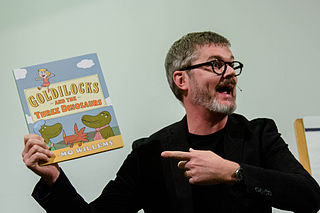A Quote by Michael Connelly
I'm not 'Mr. No-By-The-Book.' I just want to make sure the character is by the book.
Related Quotes
If you want to write about a person who isn't nice, people say, "This is a bad book. It's about somebody I couldn't stand." But that's not the point. You don't have to like a character to like a book. Most of the time, people would misjudge and say, "I didn't like the book." No, you didn't like the character. That doesn't make it any less interesting of a book. In fact, to me, it makes it more interesting.
You will want a book which contains not man's thoughts, but God's - not a book that may amuse you, but a book that can save you - not even a book that can instruct you, but a book on which you can venture an eternity - not only a book which can give relief to your spirit, but redemption to your soul - a book which contains salvation, and conveys it to you, one which shall at once be the Saviour's book and the sinner's.
When we want a book exactly like the one we just finished reading, what we really want is to recreate that pleasurable experience--the headlong rush to the last page, the falling into a character's life, the deeper understanding we've gotten of a place or a time, or the feeling of reading words that are put together in a way that causes us to look at the world differently. We need to start thinking about what it is about a book that draws us in, rather than what the book is about.
A book, being a physical object, engenders a certain respect that zipping electrons cannot. Because you cannot turn a book off, because you have to hold it in your hands, because a book sits there, waiting for you, whether you think you want it or not, because of all these things, a book is a friend. It’s not just the content, but the physical being of a book that is there for you always and unconditionally.
I first heard the term "meta-novel" at a writer's conference in Tulsa, Oklahoma. The idea is that even though each book in a series stands alone, when read collectively they form one big ongoing novel about the main character. Each book represents its own arc: in book one of the series we meet the character and establish a meta-goal that will carry him through further books, in book two that meta-goal is tested, in book three - you get the picture.


































